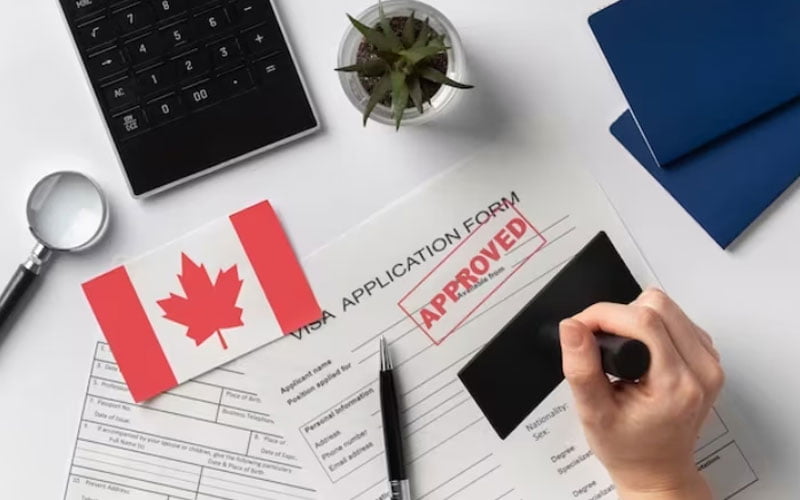Exports are a vital component in enhancing Canada’s economy, allowing the country to assert its presence on the international stage by selling domestically produced goods to foreign buyers. This movement of goods across borders is not just a financial transaction but a sophisticated process that incorporates various legalities and documentation. Canadian exporters must ensure that their documents are accepted in the destination country, which often necessitates having them authenticated to prove legitimacy. This is where the concept of an apostille comes into play.
An apostille is a type of certification provided by a designated authority that authenticates the origin of a public document. In the context of international trade, it simplifies the procedure by which documents issued in one signing country are officially recognized in another. Under the Hague Apostille Convention, to which Canada is now a signatory, the apostille Canada process for international document verification is important for exporters seeking to conduct business in countries that recognize this form of authentication. Throughout this article, we’ll explore the finer details of how Canadian exporters can manage the apostille process, effectively building a bridge between domestic paperwork and international requirements.
The Apostille Process
In a world where international interactions are commonplace, a reliable method for validating documents for use across borders is essential. The Apostille Convention, also known as the Hague Apostille Convention, came into effect in 1961 to address this need. This agreement streamlined the process of authenticating documents intended for foreign use by establishing an internationally accepted standard. In essence, an apostille is an official certification provided by a recognized authority in the country where the document originates. It confirms the legitimacy of the signature on the document, the official role of the signer, and, if applicable, the authenticity of the seal or stamp it displays. This certification does not, however, attest to the integrity of the document’s content.
The process differs from notarization, which assures a document’s credibility within the notary’s jurisdiction but does not guarantee its validity internationally. In contrast, a document bearing an apostille is considered legal and valid within all the nations party to the Apostille Convention. By establishing such a procedure, the Convention removes administrative hurdles and eases the conduct of international transactions.
Preparing Your Documents for Apostille
When you’re looking to use documents internationally, many countries require an apostille—a form of authentication which ensures that your documents are recognized abroad under the terms of the 1961 Hague Convention. Common types of documents that need an apostille for export purposes include birth certificates, marriage licenses, diplomas, corporate documents like articles of incorporation, and legal contracts. To prepare your documents for the apostille process, begin by checking the specific requirements for the country where the document will be used; this may include having an original or certified copy. Next, verify that the documents have all the necessary signatures and seals from the authority that issued them. In certain instances, they may also need to be translated. Always contact the designated authority in your state to confirm whether you’ll need any supporting paperwork, such as an affidavit. Throughout the process, a key pitfall to avoid is submitting incomplete or improper documentation, as this can result in rejection and potentially delay your plans. Therefore, you must ensure all paperwork is correctly filled out, sequenced and, where applicable, notarized before attempting to obtain an apostille. Taking the time to organize and review your documents meticulously can save much time and effort in obtaining the apostille swiftly and successfully.
Destination Country Requirements
When planning a trip abroad or dealing with international document authentication, it’s essential to grasp the specific requirements of the destination country. Each country has its own rules for accepting foreign documents, and being aware of these can save you a lot of hassle. One key factor to determine is whether the country is a member of the Hague Apostille Convention, an international treaty that simplifies legalising documents to be used abroad. You can verify this by checking lists provided by authoritative sources such as government or consulate websites. If the nation is part of this Convention, obtaining an apostille will usually be sufficient to recognise your documents.
Conversely, if the country is not part of the Convention, you’ll need to undergo a more complex process, often involving a series of certifications known as chain authentication or legalization. This typically means securing certification from a sequence of authorities in both the country where the document originates and the destination nation. Preparing for these requirements beforehand can significantly ease your international interactions and fulfil any legal obligations with minimal inconvenience.
Legal Implications and Compliance in Exporting
Understanding document certification is critical, particularly when addressing the legal ramifications of failing to apostille documents correctly. In the international arena, an apostille acts as a form of authentication issued to documents to be recognized as valid under the terms of the 1961 Hague Convention. Without this seal, significant legal issues may arise, including delays in business transactions, the potential for lawsuits, or even the rejection of documents by foreign entities, which could jeopardize international contracts and partnerships. Additionally, compliance with both Canadian and international trade laws cannot be overstated. As businesses expand their reach across borders, they must adhere strictly to the complex regulations governing international trade to avoid costly penalties and preserve their reputations. Lastly, best practices for maintaining proper records and documentation are essential for an organization’s health and legal safety. Meticulous record-keeping provides a clear audit trail, supporting a company’s compliance efforts and serving as proof of due diligence. This level of organization not only protects against legal snags but also provides a solid foundation for efficient operations and can even enhance corporate image by highlighting a company’s commitment to integrity and transparency.
Ensuring a Smooth Export Journey
As we wrap up our discussion on the apostille process within Canadian export practices, understanding document certification is paramount for businesses to thrive in international trade. The apostille acts as a golden ticket for official documents, verifying their authenticity so that they are readily accepted in countries that are part of the Hague Apostille Convention. Grasping the when, why, and how of obtaining an apostille can mean the difference between a seamless transaction and a logistical nightmare. It is essential for Canadian exporters to recognize the significance of this process and execute it with precision to avoid any unnecessary hurdles that could impede the movement of goods across borders.
















